Granma 299
“I ask the world to do something for us”.

“I ask the world to do something for us.”
Nadia Murad won the Nobel Peace Prize 2018 for her fight against the rape of women in war contexts.
Author: Ana Laura Palomino García | internet@granma.cu
October 23, 2018 20:10:41
A CubaNews translation. Edited by Walter Lippmann.
“My pain is like a hundred deaths. I sadly sentenced a 14-year-old girl to BBC MUNDO, after living such a traumatic experience as being a sex slave.
My words do not find the way to express in prose so much pain. Her phrase, however, reminds me that her story is multiplied into others, to the shame of humanity.
Nadia Murad won the Nobel Peace Prize 2018 and understands very well the sorrow of this young woman. The recognition is undoubtedly an honor, but this woman bears the cross of having been a sexual slave of the terrorist group Islamic State (IS). Since then, her struggle has not ceased, and she travels the world as an activist against the rape of women in contexts of war.
When collecting the award I remembered that “thousands of women are still imprisoned in the hands of IS mercenaries.” For this reason, “my survival is based on defending the rights of persecuted communities and victims of sexual violence. One prize and one person cannot do it. We need an international response,” she told the Spanish daily El País.
Murad is part of Yazidism, a minority religion that dates back to 2000 B.C. and has its origins in the teachings of Iranian prophet and reformer Zoroastro.
This group within Iraq has been persecuted and its members forced to convert to Islam, or die at the hands of terrorists.
It was from the year 2014, when the Islamic State began the extermination against the Yazidis and Shiites, using all kinds of vexations against them.
The beginning of the end
Nadia’s nightmare began on a normal day, in that place she called home, when IS terrorists came to her village in Iraq and killed most of the men while women under the age of 45 were kidnapped, she confessed to the BBC.
Murad suffered the same fate as almost all of these young women. They were already in the hands of the terrorists and at night the sale of the girls began among the IS terrorists, most of them to be sexually enslaved. This inhumane practice is part of the propaganda to attract more followers to the organization.
“They began to walk around the room, looking at us, while we shouted and asked for compassion. They surrounded the prettiest girls and asked them: “How old are you? They looked at their mouths and their hair. They are all virgins, aren’t they? they asked the guard, who nodded and said, “Of course, like a merchant proud of his products,” Murad recalls sadly for El Diario.
After living hard experiences, she managed to flee from her captors and began a fight without rest, at the risk of her own safety.
This battle, as she repeats in each of her speeches, will not cease until the creation of a specialized tribunal to try those responsible for the crimes committed by terrorists in Syria and Iraq.
Your mission: the freedom of a people
Murad tries to make the world aware of what’s going on with her people. She tells her story over and over again. She does everything she can because her experience is not lived by another adolescent or girl, neither in Iraq nor anywhere else in the world.
The self-proclaimed Islamic State has destroyed the lives of some 3,000 Yazidi girls and women, according to El País newspaper. Raped, locked up and sold as simple objects, they try to recover their souls when they manage to escape from their kidnappers.
I will be the last. The history of my captivity and my struggle against the Islamic State is a book written by Murad as a testimony of her experiences. In this way, she aims to reach a wider audience and raise awareness.
She has travelled to different countries in order to meet with the leaders of those nations. However, the response has not been as expected and, while world leaders make a decision, there are still girls and women being kidnapped.
Nadia has urged the international community to “work together with the determination to show that genocidal campaigns will not only fail, but will also hold perpetrators accountable and that there will also be justice for survivors.
But the world becomes blind to these problems. Perhaps this is because there are others that are considered “more important,” such as economic crises or political conflicts between great world powers. Meanwhile, wars, violence and the pains they cause continue waiting for a common effort, for human sensitivity, so that stories like those of Nadia and the thousands of girls turned into sexual slaves are not repeated and we never have to listen again: “I ask the world to do something for us”.
New US Ciber-War Announcements

CONTRaplANO
Donald Trump and the New U.S. National Cyber Strategy
U.S. National Security Advisor John Bolton announced that on September 20 President Donald Trump signed the new National Cyber Strategy plan that officially authorizes the U.S. government to conduct offensive cyber attacks.U.S. National Security Advisor John Bolton announced that on September 20 President Donald Trump signed the new National Cyber Strategy plan that officially authorizes the U.S. government to conduct offensive cyber attacks.
A CubaNews translation.
Edited by Walter Lippmann.
U.S. National Security Advisor John Bolton announced that on September 20 President Donald Trump signed the new National Cyber Strategy plan that officially authorizes the U.S. government to conduct offensive cyber attacks.
“We are going to do a lot of things in an offensive way and I think our adversaries need to know that,” Bolton said at a press conference. This document will contribute to “ensuring a secure internet”; according to Bolton, the competent bodies will now be able to “identify, counter, dismantle, degrade and deter actions contrary to national interests.”
“People who have perpetrated or are preparing to perpetrate hostile actions against us in cyberspace” should be concerned, the National Security Adviser said, emphasizing that responses to these aggressions will not be limited to cyberspace, but also include legislative responses, economic sanctions and military actions.
“The president has decided that the new plan is in our national security interest, not because we want more offensive operations in cyberspace, but precisely to create the deterrent structures that will show our adversaries that the cost is too high,” he said.
The document accuses Iran, Russia, China and the Democratic People’s Republic of Korea (DPRK), among others, of using cyberspace as an instrument to attack the U.S. And Bolton mentions examples of attacks “perpetrated” by Russia and the DPRK.
Last July, special prosecutor Robert Mueller of the U.S. Department of Justice accused 12 members of Russia’s Senior Intelligence Board (GRU) of “pirating” Hillary Clinton’s presidential campaign for the 2016 U.S. elections.
According to the Associated Press (AP), Russian hackers obtained military secrets from Washington, including its unmanned aircraft and critical defense technology. The group of hackers tracked at least 87 people working in sensitive areas of the country’s military sector such as drones, missiles, rockets and poachers, among others.
The Office of Personnel Management, an independent agency of the U.S. government, reported that hackers have made several attacks on major U.S. websites, including the Pentagon’s computer network, the Twitter and YouTube accounts of U.S. Central Command (Uscentcom), and that pirates stole access data from millions of U.S. officials, including employees of the Department of Defense.
Moscow refutes these accusations and considers it an invention. The Russian government has repeatedly said that the accusations are “absurd” and represent an attempt to divert attention from U.S. domestic affairs and its responsibility for attacks on installations, companies, military and civilian units, public and private services in Russia, Iran, the rpdc and China.
The Russian Chancellery reiterated the call to “organize a meeting of the bilateral cybersecurity working group to examine these problems with the participation of specialists from Russia and the U.S.”.
Who’s Attacking Whom
The United States Government, its intelligence services and institutions, companies linked to the military-industrial complex, have been developing a strong offensive against the Islamic Republic of Iran for a decade.
In 2010, a cyberattack on an Iranian nuclear power plant caused damage to the plant’s cooling system, which could have led to a serious incident with unforeseeable consequences. This is considered to be the first computer attack to cause damage to the physical world.
Various sources claim that the Stuxnet virus affected the centrifuges of the Iranian nuclear system. Once inside the plant, the pressure of the centrifuges increased until they failed without being detected, confusing the technicians who believed it was a physical failure. The intention was to sabotage and delay the development of the Iranian nuclear program; today there are elements to consider that the US and Israeli special services were involved in the attack.
Although it may seem like a matter of science fiction, in addition to attacks on infrastructures, cybercriminals can directly attack human life, pacemakers can be hacked that have a wireless function and end the life of an “enemy”, declared sources close to the company.
According to the CBS 60-minute program, in 2007, U.S. Vice President Dick Cheney, during George Bush’s term in office, his doctor ordered that the wireless function of his pacemaker be deactivated for fear of being hacked and killed.
FireEye, a research company in areas related to cybersecurity protection, is closely linked to cia through Robert Bigman, ex ciso (director of information security) of this agency, with whom it has signed numerous contracts for investigations into the use of malware, zero-day exploits (cyber attacks that occur on the same day a vulnerability is discovered in the system) and apt tactics (technical solutions to the Advanced Persistent Threat, apt).
FireEye has been singled out as possibly responsible for manufacturing fake attacks with the aim of singling out Russia and Iran as cyber-crime countries.
Russia was accused in 2017 of carrying out a global cyberattack that caused billions of dollars in losses in Europe, Asia and America. “The attack spread rapidly around the world”; in a communiqué the United Kingdom accused Russia of being behind this cyber aggression, an accusation that was supported by the White House.
“This has nothing to do with Russia,” Russian President Vladimir Putin said immediately during a visit to China. “Microsoft said it directly, that the source of the virus was the intelligence services of the United States.
Now that “we realize that a genie has come out of the bottle (…) he can turn against his parents,” “(…) it is necessary that the issue be addressed immediately on a serious political level,” Putin added.
Microsoft’s legal director, Brad Smith, noted that the event occurred because the National Security Agency (nsa) developed a way to penetrate Windows operating systems that ended up in the hands of pirates.
The “terabyte of death” and other cuties
The U.S. Department of Defense has repeatedly announced that a major cyber attack of unknown magnitude could occur at any time on a global scale. Pentagon spokesman Alan R. Lynn said that a few years ago receiving a one- or two-gigantic attack was an important issue.
“We are currently facing 600 gigabyte cyber attacks and cyber offensives that we could not even imagine before,” he said.
The Pentagon speaks of an eventual massive effect of one terabyte (one thousand gigabytes). “It’s only a matter of time before such an attack occurs,” warned Lynn.
On 12 May last year, the extortionist WannaCry virus infected 200,000 users in more than 150 countries. WannaCry is a computer program whose purpose is to “hijack” files from a computer and then “ransom” them from users in exchange for money.
“The size of the attack makes us think that it may not be lone wolves,” blogger José Luis Camacho told Russia Today, arguing that attacks of this magnitude require significant funding.
Part of the code of this virus corresponds to an NSA “cyberweapon” called EternalBlue, according to Bleeping Computer. With this tool, the attack takes advantage of a well-known security breach in the Windows operating system that makes it possible to take control of a computer.
Approved Plan Justifies Cyber Attacks Against Alleged Opponents
Trump repealed the so-called “presidential directive 20,” a confidential document signed by Obama and made public in 2013, when former NSA analyst Edward Snowden exposed 1.7 million files on U.S. espionage programs.
That regulation forced the Pentagon and intelligence agencies to obtain approval from other government departments before launching cyber attacks. Now that door has been left open and the Pentagon receives the authorization to act aggressively, leaving behind, according to Bolton, “the defensive position maintained until now.
The document legalizes hacking and cyber-attacks against other nations. What then can be expected of experts in manufacturing pretexts, false flag attacks, self-aggressions, simulated attacks or permitted aggressions in order to achieve dark purposes, as some point out that what happened on September 11, 2001?
The new plan opens one more scenario of danger for world peace, humanity must close ranks to stop the war madness from extending to cyberspace.
Cuba promotes the peaceful and legitimate use of information and communication technologies (ICTs) and the opportunities that cyberspace offers for the development and well-being of humanity.
PSOL will support Haddad in run-off

PSOL will support Haddad in the run-off election
As Brazil celebrates its second round of presidential elections, the parties begin to announce their alliances
—————————————————————————————–
October 9, 2018 14:10:33
A CubaNews translation.
Edited by Walter Lippmann.
The Socialism and Freedom Party announced on Tuesday that it will support the presidential candidate of the Workers’ Party, Fernando Haddad, for the second round of elections to be held on October 28.
“To defeat Bolsonaro and defend rights, in the second round the PSOL defends the vote for Haddad and Manuela. AgoraÉHaddad”, says the publication in the party’s social networks.
Luiz Inácio Lula da Silva’s representative at the polls will have to face the utlraderechista Jair Bolsonaro in the next election day. After the vote on Sunday, October 7, Bolsonaro got 46 percent of the votes, while Haddad got 29.3 percent.
To advance towards Brazil’s presidency, candidates will have to resort to political alliances with other parties.
Meanwhile, former Democratic Labour Party candidate Ciro Gomes, who received 12.5 percent of the vote, said he would not support Bolsonaro.
Chucho Valdés, Always Ours

Chucho Valdés, Always Ours
Dionisio de Jesús Valdés Rodríguez, known as “Chucho” Valdés, celebrates his 77th birthday and continues to give glory to our country.
Author: Ricardo Alonso Venereo | venereo@granma.cu
October 8, 2018
A CubaNews translation.
Edited by Walter Lippmann.
If Bebo Valdés is of Cuba, so is his son Dionisio de Jesús Valdés Rodríguez, known as “Chucho” Valdés, who, this October 9, the date of his father’s centenary, will be 77 years old. Both were born in the municipality of Quivicán: both of us.
A friend recently told me: Bebo and Chucho Valdés put this town, in the province of Mayabeque, into the category of Grammy town. How many towns in the world, with an average of 20,000 or more inhabitants, have Grammies that add up to those two? Together they total eleven awards between Grammy Latino Awards and the Latin Grammys.
And, if the father is an obligatory reference in the history of Cuban music, the son is no less so. He is a pianist, composer, music teacher, musical arranger and director. His work is distinguished by its Cuban nature and by his being among the best jazz musicians in the world. As a pianist, he also ranks among the best. He is a master in all genres, both jazz, classical music and popular dance music.
With Irakere, considered by many to be the most important Cuban music group of the second half of the 20th century, which Chucho founded in 1973, he patented a label very hard to beat in contemporary and future Cuban music. Here are his songs Misa Negra and Bacalao Con Pan (Black Mass and Cod with Bread). In 2002, together with Leo Brouwer, he won the first National Music Award. In 2006 he was appointed Goodwill Ambassador of the Food and Agriculture Organization of the United Nations (FAO). He has been granted a Doctor Honoris Causa by prestigious Berklee College of Music in Boston, the University of Victoria in Canada, and by the University of the Arts (ISA). He also holds the Félix Varela Medal of Cuba, the keys to the cities of San Francisco, Los Angeles, Madison and Nevilly in the United States and Ponce in Puerto Rico.
His time at the world’s greatest jazz festivals has been overwhelming. With his new group, The Afro-Cuban Messengers, “Chucho” Valdés continues to give glory to our country.
Bebo Valdes is Of Cuba

Bebo Valdés is Of Cuba
It cannot be otherwise for the one who played a very important role in the crystallization of the orchestral style with which vernacular music reached its purest expression around the middle of the last century.
Author: Pedro de la Hoz | pedro@granma.cu
October 8, 2018 20:10:13
A CubaNews translation.
Edited by Walter Lippmann.
It cannot be otherwise for the one who played a very important role in the crystallization of the orchestral style with which popular music reached its purest expression around the middle of the last century.
Ramón Emilio Valdés Amaro is from Cuba. Not even the decades in which he lived far away, first in Sweden and later in Spain, did he cease to be ours or to promote Cuban music. One hundred years after his birth on October 9, 1918 in Quivicán, Bebo Valdés is from Cuba.
It cannot be otherwise for those who played a very important role in the crystallization of the orchestral style with which popular music reached its purest expression around the middle of the last century. At the same time, he contributed substantial values to the development of the Cuban descarga [jam session], the most imaginative and endearing variant of the criollization of jazz.
Between Dámaso Pérez Prado, Chico O’ Farrill and Armando Romeu, plus Benny Moré’s genius as a free and unique electron. Without any academic training, he molded a band tailored to his desires. Bebo occupies a place to which, time and time again, it will be necessary to return to find the keys to the height reached by insular music and its continental projection in the 1950s.
Bebo’s trademark was the Sabor de Cuba orchestra, with which he worked on the Tropicana cabaret, alternating with that of Armando Romeu, between 1949 and 1957; They recorded memorable sessions, as well as accompanying leading Cuban and foreign figures, including Rita Montaner and Nat King Cole.
In 1952, he created the batanga rhythm, whose renovating approaches were not deciphered by the record and entertainment industry, but whose traces became a reference for much of what has happened since then in the evolution of both Cuban jazz and timba. By the way, the initial recordings of the new rhythm included Benny Moré, who had just returned from Mexico and had not yet assembled his portentous giant band.
He ended up in Mexico in 1960, where he collaborated for a while with Chilean Lucho Gatica, whom he knew from Havana. Then he settled in Europe. He left his family behind and founded another in Sweden. He never understood the changes that took place in his native country. But not even in the days of making a living in Swedish restaurants and discos did he stop thinking about music in Cuban terms. So much so that, at age 76, as someone said, he reinvented himself when he was called to record in New York.
That’s the Bebo who begins to ride again, in the airs of Latin jazz, albums like Bebo Rides Again, and movies like Calle 54, his fabulous union with singer Diego el Cigala and the reunion with his son Chucho Valdés in the album Juntos Para Siempre.
But I would like to point out what researcher Rosa Marquetti has said: “It would be a capital mistake to reduce the importance of Bebo Valdés in Cuban music, to the international boom that reached its revival with the album Lágrimas Negras (Black Tears). In any case, his world recognition achieved in the last decade of the twentieth century was a deserved culmination of a career that crosses a century and more in Cuban music.
He has his own outstanding place among the best orchestra conductors, composers and pianists of transcendence, and is one of the most creative arrangers in the entire history of our music.
That is the Bebo who, in his centennial year, I would like to remember, and that, without a doubt, over and above the anecdotal, legitimately belongs to us.
Jim Carrey and the “Yes” to Socialism

FROM THE LEFT
Jim Carrey and the “yes” to socialism
The words of the famous American actor Jim Carrey, in which he advocates socialism, have given a lot to talk about on social networks on the Internet and in the mainstream media for several weeks. The supposed defenders of “freedom of expression” have unleashed all sorts of attacks against him.
———————————————————————–
Author: Jorge Ángel Hernández | internet@granma.cu
October 7, 2018 20:10:40
A CubaNews translation.
Edited by Walter Lippmann.
Throughout its history, the democracy of political parties has proclaimed its defense of freedom of expression. It appears as a citizen’s right in all constitutions. To make matters worse, it has been used with great manipulative intelligence since the Cold War.
Thus, a pattern of appreciative judgment has been achieved that, as the 21st century goes by, accuses the emerging socialisms of being dictatorships as it assumes that capitalism guarantees freedom.
The reality is quite different, since the contradiction with which public opinion is pressured imposes a terrorist response, even to the most advanced models of socialism, without ruling out public condemnations based on diverse judicial subterfuges; practices completely normalized today that impose a condemnation of socialism historically and towards the far future. In other words, to infinity and beyond.
This has been done in South America, even with center formations that only apply measures of humane capitalism, such as the Argentina of the Kirchners.
Suddenly, the well-known actor Jim Carrey said on HBO: “We have to say yes to socialism -“to the word and everything”-and the true reactions which that freedom of expression have generated.
Fox’s review starts by discrediting him as a confessed Hollywood destroyer. It artificially superimposes on Carrey’s declaration, Fox’s own claim that Venezuelan socialism is a failed system, in which thousands of people suffer the worst living conditions on a daily basis.
The Fox reporter who assumes these words is not aware of the plans for housing, health, education, culture nor, of course, of the terrorist interference and mercenarism – in successive boycotts of the national economy and in real and concrete attacks – with which they have tried to besiege Bolivarian socialism.
If you look at it, Carrey’s focus does not delve into socialism itself, but calls for resistance to the insanity of the regime in power in the U.S. It takes as a formula the very system of political parties of U.S. democracy. It is a call to shake off the predetermined aggressiveness between Republicans and Democrats in the United States.
But the reaction has been brutal: exercising freedom of expression, in the context where the actor usually operates, could cost him his career, among the brightest and best paid in the film industry today, if he depends on this terrorist machinery of information. This is how many Venezuelan bigots manipulate and respond wherever the news appears.
For the democracy of political parties, led by the American one, the word -and only the word-, “socialism” represents the satanic in all dimensions.
Carrey has made it clear in his comments that whoever uses it must apologize, that it is vetoed from the supposedly democratic vocabulary. And that is what those who hijack the idea of freedom of expression to make it a hostage and client of their own oppression immediately bet on.
McCarthyism is still alive and those who dare to cross the fine line of censorship will have to face terrorist smear campaigns and the manipulation of justice.
For this reason, we must not only say yes to the word “socialism,” but to everything else that the system proposes and facilitates in the emancipation of the classes that are still oppressed by capital. Jim Carrey is absolutely right. (Taken from La Jiribilla)
“A pattern of appreciative judgment has been achieved that, advancing in the 21st century, accuses emerging socialisms of dictatorships.
“Exercising freedom of expression, in the context where the actor usually operates, could cost him his career, among the brightest and best paid in the film industry today, if he depends on this terrorist information machinery.
Cuban poet, narrator and essayist. Villa Clara, 1961. Collaborator of several press media. Directed the culture magazine Umbral, by Villa Clara. He received the Distinction for National Culture in 2004.
Photo from La Jiribilla:
Last Tango in Paris: Truth or Lie?

SPECTATOR’S CHRONICLE
Last Tango in Paris: Truth or Lie?
Last Tango in Paris (Bertolucci, 1972) has been shown again these days at the Yara cinema as part of a series entitled Placeres y Angustias de la Carne (Pleasures and Anguishes of the Flesh), and with it comes “the latest” -which is really not so new-, related to one of the most controversial films in the history of cinema.
Author: Rolando Pérez Betancourt | internet@granma.cu
September 2, 2018 18:09:42
A CubaNews translation. Edited by Walter Lippmann.
LAST TANGO IN PARIS (Bertolucci, 1972) has been shown again these days in the Yara cinema as part of a series entitled Placeres y angustias de la carne (Pleasures and Anguishes of the Flesh), and with it “the latest” comes to light -which is not really so new-, related to one of the most controversial films in the history of cinema. “The Last” refers to some statements made by Bernardo Bertolucci for the French Cinémathèque in 2013 and aired on YouTube in 2016 on the occasion of the International Day Against Gender Violence.
There, the Italian director was putting the stamp on what had long been vox pópuli in the film world: the rape scene (using butter) had not been agreed-upon with the actress Maria Schneider. Rather, it was a trap devised the day before by Marlon Brando, and accepted by him [Bertolucci] to obtain a true veracity.
It should be remembered that Last Tango … narrates the passionate, and not infrequently violent, relationship of a 19-year-old girl with a 48-year-old man and, according to its director, he wanted Schneider not to interpret her humiliation and rage, “but that she really felt it ».
The statement again put on the table the old controversy of how far art can get to capture what the creator proposes. In a short time the video had more than half a million views, not a few condemning Bertolucci and Brando.
Actresses like Jessica Chastain and Chris Evans declared that they would never see the film again, nor would they look at its director and main actor in the same way.
LAST TANGO IN PARIS ran the risk of returning to go to the bonfire, as happened at its premiere, although in those days from the perspectives of a prudish morality that banned it in several countries, including Italy, cradle of its director.
Then came the urgent statement from Bertolucci saying that the assembly of his statements had been misinterpreted on YouTube and that the scene of the rape, which was not real, was in the script. The only new thing was “to use the butter” and take her by surprise “so that she would react like a girl, not like an actress,” he reiterated.
Maria had already died of cancer, in 2011, at age 58.
In 2007 she had made statements to the Daily Mail that did not reach light until 2016, along with the new controversy: “during the scene,” she said, “even if what Marlon did was not real, I really cried. I felt humiliated and, to be honest, a little violated by Marlon and Bertolucci. At least it was only one take ».
She would not tire of repeating that she had ended up hating them both and having finished her career she entered a psychiatric clinic. Depression would mark her for life and it is not risky to say that in it much had to do the film that brought her to know fame.
Some said unjustly in those days that she had been far below Brando, without taking into account that Maria’s inexperience, being nude for part of the plot, and forced to respond to the constant improvisations of her partner, as Bertolucci allowed to the actor to change and contribute whatever he wanted in full shooting.
Impressed by the performance of the young woman, many first-line directors -Buñuel, among them- went out to hunt her, but she simply did not measure up.
Today LAST TANGO IN PARIS is the great film that is, regardless of the comments-truths, half-truths and lies-that will continue to arrive, even if not one member of the audience from the time of its release, who applauded and were moved by her, remains alive.
Of John McCain and Other Truths

Of John McCain and Other Truths
The media has reflected that McCain’s wife will be the one to take office in the Senate, a practice that demonstrates the unique logics of American “democracy”.
—————————————————————–
Translated and edited by Walter Lippmann for CubaNews.
He went to war in Vietnam and did so at ease, convinced that by bombing the people of that country he was helping the greatness of the United States, while striking blows against communism, then identified as the Soviet Union.
This is Senator John McCain, who died recently at the age of 81, who at only 31 was a lieutenant colonel in the U.S. Navy and on October 26, 1967, during an action against the Vietnamese population, the fighter jet he flew was shot down by a Soviet-made missile during his 23rd mission to the north of the Asian nation.
After their physical disappearance, due to cancer, not a few stories and fables have been spread to the world by the big media. An attempt has even been made to establish a supposed critical stance against the current president, Donald Trump.
Little or nothing, however, is brought to the international community’s attention regarding the war against Vietnam and the hundreds of thousands of Vietnamese deaths, many of them from Agent Orange, a toxic chemical used savagely by Washington.
The war in Vietnam – I am sure – scarred this man of war and the system he represented, not only for the five years he was a prisoner of the Vietnamese army. In this regard, the period of time between his death and the broadcast by the media of the most varied lies, exhibits as an example those that stand out in the supposed “torture” that the U.S. military suffered.
Today the mainstream media highlights one aspect of McCain’s posthumous letter, in which he emphasizes the the deceased’s recommendation that Americans not hide behind walls. “It’s a veiled critique of Donald Trump,” reports the northern nation.
It is also recalled that whoever was a candidate in the 2008 elections, had numerous public confrontations with Trump despite being colleagues in the Republican Party. In his posthumous letter he calls for understanding between different positions.
As an example of the media’s treatment of the death, John McCain lived at a time when the political, military and cultural power of the United States was unrivalled in the world.
The Republican senator was born a few years before World War II and came to adulthood at the dawn of the United States becoming a global superpower. “Now he is leaving during what is, perhaps, the twilight of U.S. domination as the nation focuses inward, concerned about the potential risks and challenges of immigration, multilateralism and the global economy,” says Anthony Zurcher, BBC correspondent in Washington, D.C.
Another issue that has not escaped the media hype has to do with the occupation of McCain’s Senate seat and the references that his widow, Cindy, will be the nominee, since an Arizona state law – very “democratic” in the style of the United States, by the way – determines that it is the governor who appoints his replacement until 2020.
Although there has been little time between the death of the former U.S. military man who bombed Vietnam and the media coverage with its excesses and adulterations, would it not be too much to ask that, in moments of recollection like this, at least remember what happened in Vietnam.
Or is it that the truth may be different when it comes to the United States?
Marijuana Legalization

Marijuana Legalization:
Know the World Before You Give Yourself to It
About the International Day against Drug Abuse and Illicit Trafficking of Drugs and the growing debate over the legalization of the most widely used illicit drug in the world, Granma spoke with the renowned professor Dr. Ricardo A. Gonzalez Menendez, consultant of the service for comprehensive care of addictions at the Havana Psychiatric Hospital and Chairman of the National Medical Ethics Committee.
Author: Lisandra Fariñas Acosta | lisandra@granma.cu
June 25, 2015 23:06:32
A CubaNews translation.
Edited by Walter Lippmann.
For more than 6000 years, the world has known Cannabis sativa and the history of human consumption dates back some 5500 years. Of Asian origin, Cannabis Indicus –its common name- was used for centuries as a textile fiber and its seeds as bird feed. It is marijuana, whose effects were initially considered scarcely dangerous and therapeutically useful, which placed it in the frontline of medications thousands of years ago, but which today are recognized as catastrophic.
It seems paradoxical that in the 21st Century, “the debate over this plant and its effects resembles that of 2000 years ago, the date of Proverbs that clearly indicate divided opinions. For some, marijuana was a passport to paradise, while for others it was a plant that grew along the road to hell. It is extremely worrying that we are now at the same point, when marijuana is a hard drug which is included, along with alcohol and other substances, among the first psychoactive substances capable of significantly transforming human behavior.”
Marijuana is a hard drug which is included, together with alcohol and others, among the first psychoactive substances capable of significantly transforming human behavior.”
This reflection was given to Granma by Dr. Ricardo A. Gonzalez Menendez, consultant of the service for comprehensive care of addictions at Havana Psychiatric Hospital and Chair of the National Medical Ethics Committee when commenting on the current trend around “the ghost” of legalizing marijuana, the most widely-used illegal drug in the whole world.
With over 30 years experience in the treatment and detoxification of addicts, the professor said it was urgent to destroy myths with facts that are established science. There is enough up to date scientific information on the outbreak of schizophrenia, cognitive impairment, carcinogenicity and sudden violence caused by marijuana consumption.
“One argument that has contributed to the legalizing trend is the therapeutic properties attributed to the plant. The list of positive effects range from the attenuation of nausea and vomiting associated with cytostatic serums in cancer patients receiving chemotherapy, references to some decrease in seizure frequency and the intraocular pressure in glaucoma cases, up to analgesic effects and appetite control as well as tranquilizing action, despite being one of the drugs most associated with symptoms of acute anxiety or panic,” said the expert.
Although the macroeconomic and social impact of organized crime is indisputable, proponents of legalization, cannot, by their professional profile, assess the impact at home, work and community of the cerebral effects of this drug that blocks the rational brain and releases the more primitive structures and functions”
Precisely –he said– what happens is that for all these cases there are specific and more effective medications with the huge advantage of being much safer when applying the ethical principle of risk-benefit. “Marijuana, like tobacco, alcohol and all the hard drugs are not isolated and purified active principles, but mixtures of hundreds of chemicals with different effects, often opposite and usually harmful. From this, it follows that the use of the drug as medicine would require a pharmacological high-tech process to demonstrate, separate and produce adequate presentations for consumption, dosage and control of both positive and adverse effects. The final product would be tablets, vials or eye drops and not the absolutely anti-medical way that has been proposed for its use, which is the traditional form of illegal consumption simply growing and smoking marijuana either in the form of leaves, flowers and stems, as resin (hashish) or oil obtained through the same procedures as those used by narco producers and drug traffickers.”
The interviewee said that many honestly think that legalizing this drug is a solution –among them people with high human qualities, but with limited knowledge of the neuro-psycho-physical pathology and the personal, home and community impact of behavior modifying drugs, as well as the micro-paradigms of risk-benefit and accessibility–consumption implicit in such a measure. “They do not know the true face of drugs. Few have been able to interview a patient who feels enslaved wanting to stop using and being powerless, nor a desperate mother who has gone out with a gun to kill the seller who supplied his son, and who is a codependent, almost passive consumer hurt by the addict’s suffering.”
There is enough up-to-date scientific information on the outbreak of schizophrenia, cognitive impairment, carcinogenicity and sudden violence caused by marijuana consumption.”
For Dr. González Menéndez, the contradiction between these two tendencies is not based on lack of human values or the dubious ethics of the proponents, but in lack of knowledge. “Although the macro-economic and social impact of organized crime is indisputable, proponents of legalization cannot by their professional profile, assess the impact at home, work and community of the cerebral effects of this drug, that blocks the rational brain and frees the most primitive structures and functions. It is also naive to expect a reduction of consumption by eliminating the ”attraction of the forbidden” he remarked.
“Consuming marijuana before age 18 reduces up to 10 IQ points, and that is irreversible”
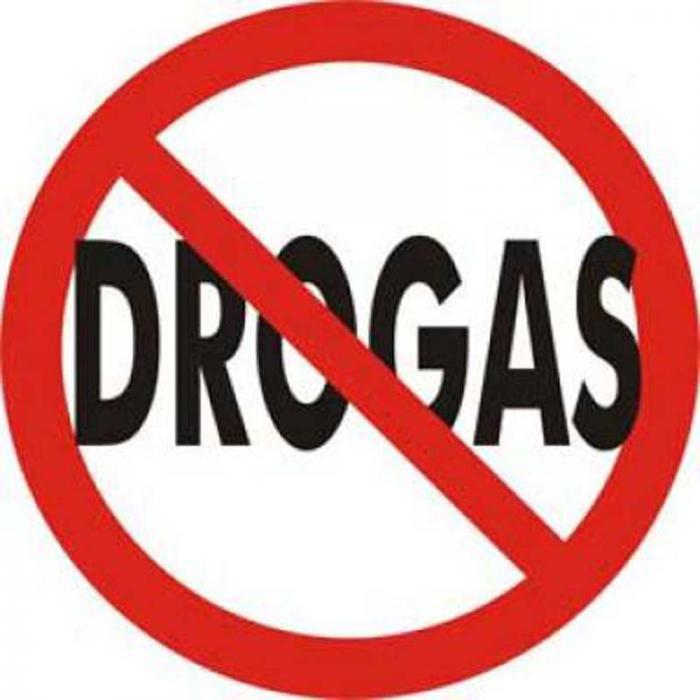 If marijuana is an illegal drug (like many others) it is not by chance but because the extensive damage it causes has been established. “The myth that it is a soft drug without determinant effects of addiction and dependency must be destroyed. Far from it, the percentage of consumers who become addicted and dependent, the little time it takes for that slavery to settle in and the great risks to determine symptoms of irreversible intellectual impairment, treatment-resistant schizophrenia, cannibalistic behaviors and cancer manifestations make marijuana quite hard and destructive drug which can by no means be underestimated. It produces moderate dementia with memory and learning difficulties in adolescents, especially those who began to consume early,” he said.
If marijuana is an illegal drug (like many others) it is not by chance but because the extensive damage it causes has been established. “The myth that it is a soft drug without determinant effects of addiction and dependency must be destroyed. Far from it, the percentage of consumers who become addicted and dependent, the little time it takes for that slavery to settle in and the great risks to determine symptoms of irreversible intellectual impairment, treatment-resistant schizophrenia, cannibalistic behaviors and cancer manifestations make marijuana quite hard and destructive drug which can by no means be underestimated. It produces moderate dementia with memory and learning difficulties in adolescents, especially those who began to consume early,” he said.
Professor González Menéndez argues that in today’s science, it is irrefutable what happens in the brain of a human being under the influence of these drugs. “Drugs that modify behavior in a relevant way, that is, from alcohol on, have immediate effects. In mid- and long terms, when consumption is addictive and prolonged, they cause impulsive and irrational instinctive-affective behaviors that are exclusive to animals. This has very little to do with the humanism, ethics and spirituality that everyone expects. “
It is marijuana –even more than the non-social use of alcohol– the true prototype of the “Russian roulette” metaphor in which no one can know for sure when the bullet will fall into the chamber; and when that happens, the effects are usually fatal
“The misuse of these substances implies a profound moral degradation, with the potential to become chronic in the individual case, but it has a generalization potential that would turn it into a macro-social phenomenon of very high relevance, because, when sober, our behavior is cognitive, volitional, rational and controlled. This also brings down the belief that marijuana does not generate violence or criminality. “
The history of these 6000 years of living with marijuana has given exemplary lessons.
Clinical and research experience shows that the much-propagandized ‘consumer placidity’ often and unpredictably is transformed into extreme violence. Therefore, marijuana –even more than the non-social use of alcohol– is the true prototype of the “Russian roulette” metaphor: no one can know with certainty when the bullet falls into the chamber, and when this happens, the effects are usually fatal.
LEARNING FROM SCIENCE AND HISTORY
The history of these 6000 years of living with marijuana has given exemplary lessons. Our interviewee remembers that in the early eighteenth century there was an English doctor, O’Shaughnessy, who traveled to India and returned amazed at marijuana’s analgesic properties. He was so enthusiastic that with his influence he managed to get marijuana introduced in the pharmacopoeia of his country. This trend reached the United States. A decade later, England declared it was a mistake to have this substance (“a product with so many dangers”) in their list of medications. A few years later, the United States eliminated it and subsequently, India did the same.
Finally, since 1971, the use of cannabis was controlled through the “Illicit Drugs Act” which prohibited the medical use of both the weed and its active constituents. Its nefarious actions on the human body had eclipsed its possible medical uses. This criterion was emphatically endorsed by the World Health Organization (WHO) in 1997, recognizing that cannabis adversely affects mental health.
The legalization of marijuana is far from being an accurate blow to drug trafficking, and so, as organized crime, how long would it take to replace and compensate the product for other designer drugs?
Physician Jacques Moreau, quoted by Escohotado, had described in 1973 his experiences resulting from the self-administration of an infusion of Sativa Cannabis flowers. He described eight main symptoms observed under the influence of the substance: “Unexplained feelings of happiness, dissociation of ideas, errors in assessing time and space, exacerbation of hearing, fixed ideas, disturbance of emotions, irresistible impulses and delusions or hallucinations”. He suggested that, in some cases, the intoxication caused by this drug could be considered a pattern of psychiatric illness.
The idea that ending the ban would end the lure of the forbidden, and reduce consumption, is absolutely anti-historic. The specialist says that it would be enough to remember London in 1751 when a phenomenon called the gin epidemic inspired Hogarth’s Gin Alley engraving. The work is expressive of the catastrophic effects derived from a certain overproduction of grains diverted to the production of the most genuine and legal drink of the time in that country. A 90% reduction of gin’s price created a flood of eager buyers who –as shown in the engraving– committed every imaginable crime. The consumption of this drink was multiplied by more than five and the tragedy transpired to this day.
Dr. González Menéndez says the legalization of marijuana is far from being a real blow to drug trafficking because organized crime would soon replace the product and compensate with other designer drugs. Can we ignore the consequent risk of a chain of effects that in the long run would make us face the dilemma of having to legalize all drugs, and the resulting immediate extinction of the human species?
The specialist says that the trend –defended by many on the grounds of the right of each person to choose how to live their lives– imposes a reflection: “Doesn’t that right end where the rights of others begin? And what about the cost to the family, and bystanders who die in traffic accidents due to marijuana or other drugs such as ecstasy? Isn’t legalization of marijuana a first step, by necessity consistent with the promotional efforts of health and healthy lifestyles, the promotion of moral values, of prevention of disease and crime, as well as the creation of a better world? Can we thus achieve cultures of higher spirituality, and dismissive of the consumption of substances that degrade our biological, psychological, social and cultural well-being? Can the problem of drug abuse be solved by legalizing consumption without creating truly effective multi-sector systems for the care and comprehensive solution of the multiple effects of drug abuse?”
We live in a world where young people tend to experiment. We fear legalization will determine most unfavorable results once the drug is free from family, school and community censure –together with the higher addictive nature of marijuana compared to alcohol.
Tobacco and alcohol should have taught us something. If with only two legal drugs in the world we lose more than nine million lives each year, do we need another legal drug? Drugs –that do not respect anything, not age or gender, or skin color or culture, ideology, sexual preference or philosophical position– open the doors to more drugs. The success of anti-drug programs depends on our awareness that these toxic substances are a system of substances that associate and reinforce their actions. This demands the indispensable confrontation with all its categories. We must remember the universal principle that the greater the access, the greater the consumption.
http://www.granma.cu/cuba/2015-06-25/conoce-el-mundo-antes-de-darte-a-el
Development without drugs
According to the World Drug Report 2014, the use of these substances continues to cause considerable damage, reflected in the loss of valuable lives and the productive years of many people.
Author: Lisandra Fariñas Acosta | lisandra@granma.cu
June 26, 2015 00:06:46
This new International Day against Drug Abuse and Illicit Trafficking -–a day that humanity celebrates every June 26– is dedicated to development for our lives, our communities, and our identity in a world without drugs.
This date established by the United Nations General Assembly in 1987, serves to remind the target agreed by the Member States of the United Nations to create an international society where drugs are not misused. According to the World Drug Report 2014, the use of these substances continues to cause considerable damage, reflected in the loss of valuable lives and the productive years of many people.
“In 2012 an approximate total of 183 000 drug-related deaths were reported (variation margin 95 000-226 000). That figure corresponds to a mortality rate of 40,0 (variation margin: 20.8 to 49.3) deaths per million in the population between 15 and 64 years,” refers the document.
Although this calculation is less than 2011 figures; this reduction can be attributed to the lower number of deaths reported by some countries in Asia.
According to the statistics in this global report it is estimated that in 2012 between 162 and 324 million people, i.e. 3.5% to 7.0% of the population between 15 and 64 years, consumed illicit drugs – mainly cannabis group substances, opium derivatives, cocaine and amphetamine-type stimulants– at least once.
This Friday, June 26, the United Nations reminds everyone that we all have a role to play in protecting youth from dangerous substances.
http://www.granma.cu/cuba/2015-06-26/desarrollo-sin-drogas
United Nations Secretary-General Ban Ki-moon:
Message on International Day
against Drug Abuse and Illicit Trafficking
26 June 2015
VIENNA, 26 June (UN Information Service) – In September, leaders from around the world will meet at the United Nations to adopt an ambitious new sustainable development agenda to eradicate extreme poverty and provide a life of dignity for all. This ambition, while achievable, must address various obstacles, including the deadly harm to communities and individuals caused by drug trafficking and drug abuse.
Our shared response to this challenge is founded on the international drug control conventions. In full compliance with human rights standards and norms, the United Nations advocates a careful re-balancing of the international policy on controlled drugs. We must consider alternatives to the criminalization and incarceration of people who use drugs and focus criminal justice efforts on those involved in supply. We should increase the focus on public health, prevention, treatment and care, as well as on economic, social and cultural strategies.
We must address the nexus between illicit drugs and violence, corruption and terrorism. A balanced approach recognizes the close connections between those who traffic in drugs and criminal networks involved in firearms smuggling, kidnapping, human trafficking and other crimes. This work must also include redoubling efforts to prevent the supply of the precursor chemicals that are the foundation of so many illicit drugs.
Promoting international cooperation through the UN conventions on transnational organized crime and corruption is essential to addressing today’s security and development challenges. No criminal should escape justice. The balanced approach calls for unity of purpose within the international community, including the UN, civil society and, most importantly, the world’s nations. No country can work in isolation. Comprehensive and integrated efforts at the local, regional and global levels offer the best hope for dealing with the traffickers, while taking care to protect vulnerable groups and marginalized communities.
Efforts against illicit drugs must be connected to our work to promote opportunities through equitable and sustainable development. We must continually strive to make the weak and fragile stronger. The United Nations General Assembly special session on the world drug problem, to be held in April 2016, can advance this cause, with countries sharing knowledge and forging common solutions.
On the International Day Against Drug Abuse and Illicit Trafficking, let us raise awareness about the value of applying a balanced approach to these problems based on an understanding that sustainable development can and must catalyze change across all these fronts.
Original print edition in PDF:
http://www.granma.cu/file/pdf/2015/06/26/G_2015062604.pdf
http://www.granma.cu/file/pdf/2015/06/26/G_2015062605.pdf
Fidel Castro on his mother Lina

Lina
“Tell me about your mother”, was the request of journalist Ignacio Ramonet to Fidel
————————————————————————————————————
Author: Fidel Castro Ruz | internet@granma.cu
August 12, 2018 18:08:16
A CubaNews translation.
Edited by Walter Lippmann.
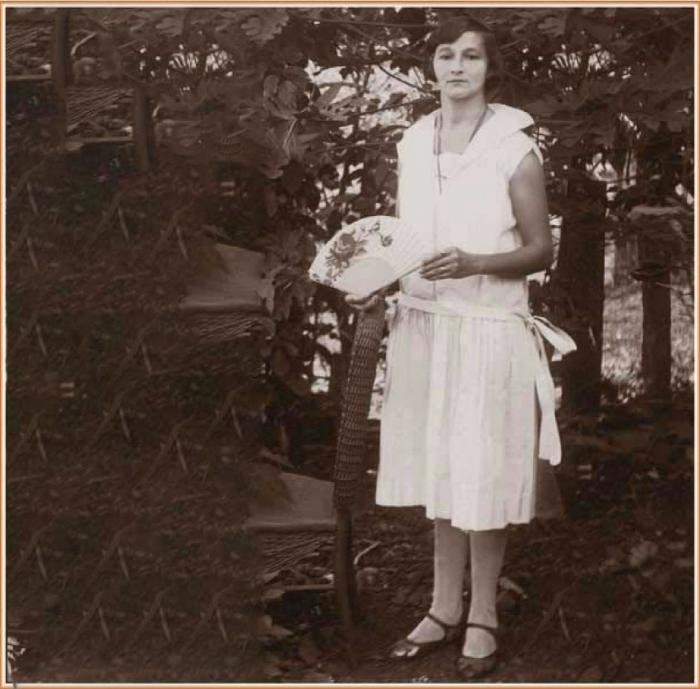
Extraordinarily hardworking, there was no detail that escaped her observation, Fidel said of his mother. Photo: Office of Historical Affairs
She brought into the world seven children, all born in that house, always assisted by a rural midwife. There was never and could never be a doctor there, it did not exist in all that remote region. No one tried so hard to get her children to study, she wanted for them what she didn’t have. Without her, I, who always felt the pleasure of studying, would still be functionally illiterate today. My mother, even if she didn’t say it every minute, loved her children. She had character, she was brave and self-sacrificing. He knew how to bear with integrity and without hesitation the sufferings that some of us involuntarily caused her.
She accepted the Agrarian Reform and the distribution of those lands, which she undoubtedly loved, without bitterness.
Extremely religious in her faith and beliefs, which I have always respected, she found comfort in her sorrow as a mother, and she also accepted with motherly love the Revolution for which she suffered so much, without having had the slightest possibility of knowing the history of humanity and the deepest causes that the events she experienced so closely in Cuba and in the world originated, due to her origin as a humble poor peasant woman.
She died on August 6, 1963, three and a half years after the triumph of the Revolution.
Subscribe to Blog via Email
| M | T | W | T | F | S | S |
|---|---|---|---|---|---|---|
| 1 | ||||||
| 2 | 3 | 4 | 5 | 6 | 7 | 8 |
| 9 | 10 | 11 | 12 | 13 | 14 | 15 |
| 16 | 17 | 18 | 19 | 20 | 21 | 22 |
| 23 | 24 | 25 | 26 | 27 | 28 | 29 |
| 30 | 31 | |||||



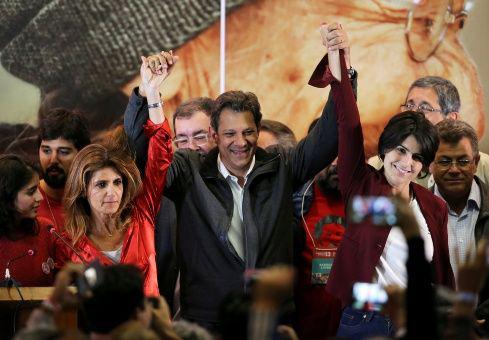
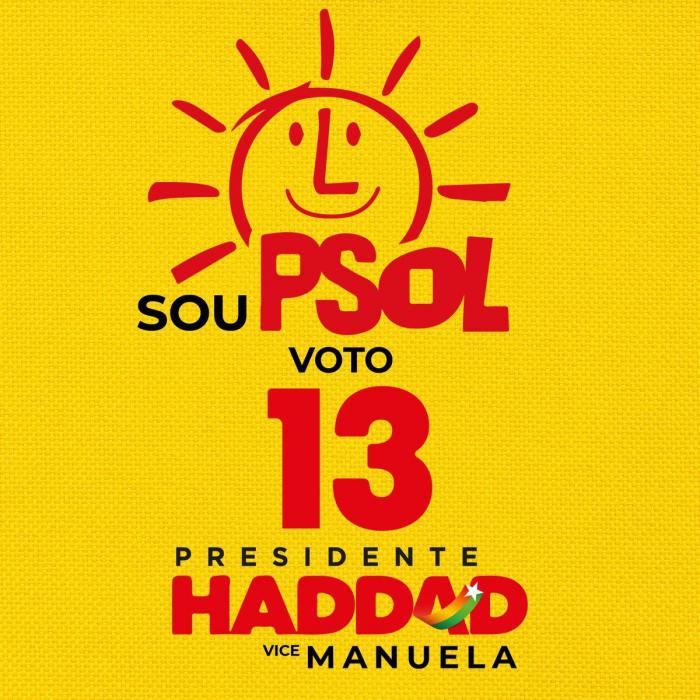


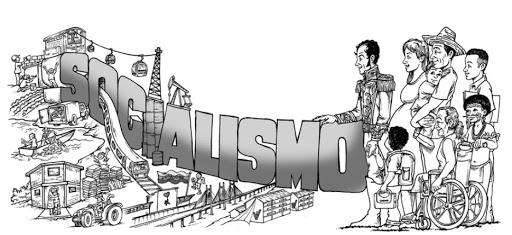
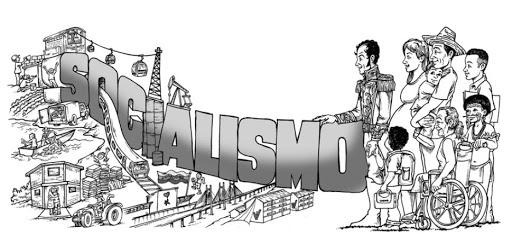




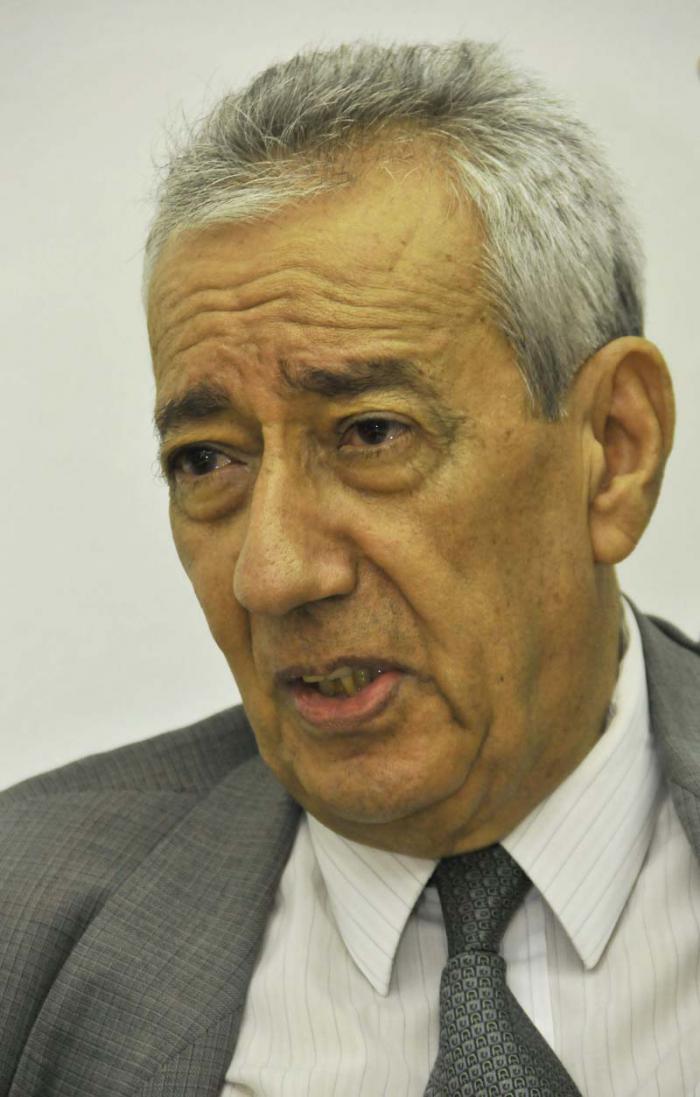
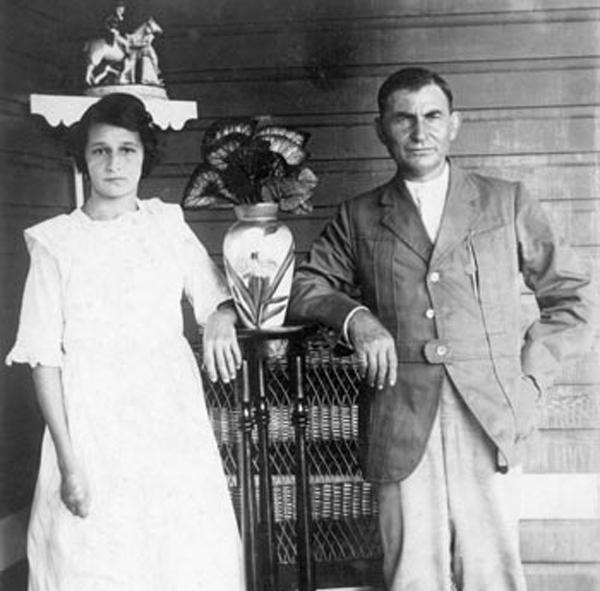

You must be logged in to post a comment.